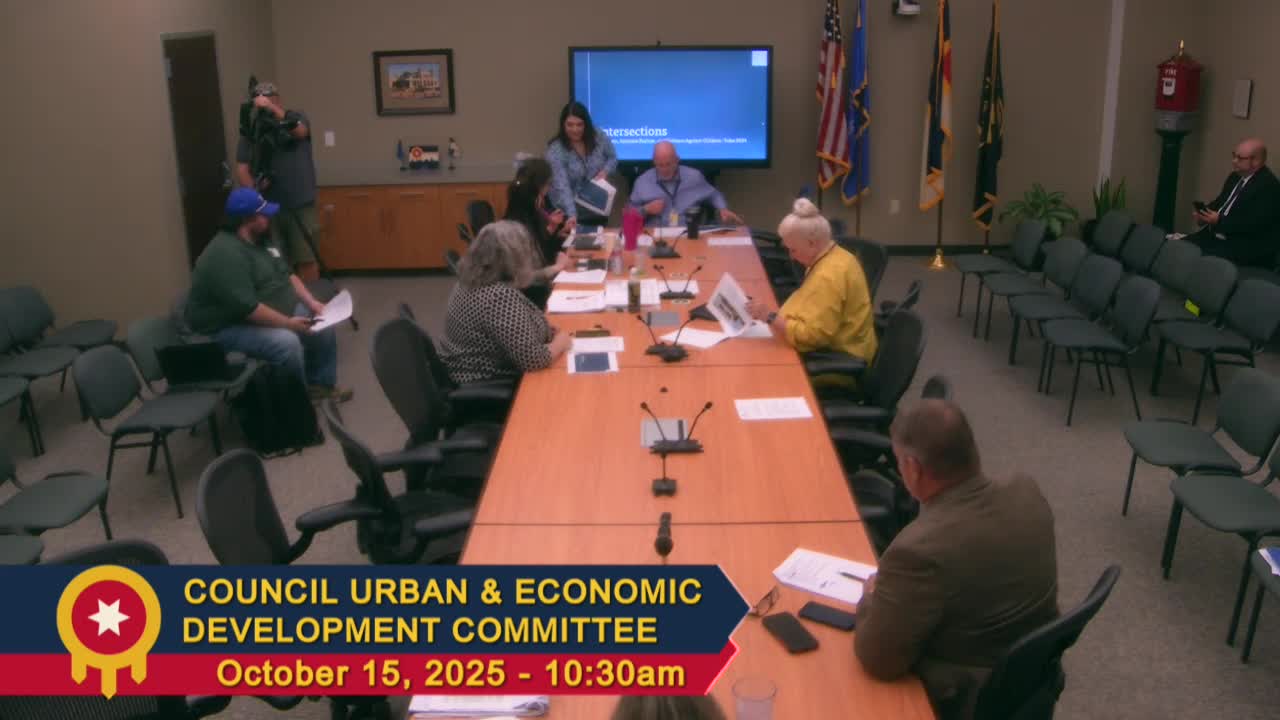Family Safety Center readies move to new facility; leaders say operations will need $500,000 a year in ongoing funds
Get AI-powered insights, summaries, and transcripts
Subscribe
Summary
Executive director Suzanne Stewart briefed council on the Family Safety Center’s new $24 million building, described services and partners, and asked for community support to cover about $500,000 a year in operating costs.
The Family Safety Center, which co‑locates domestic‑violence services, law enforcement advocates and child‑abuse exam services, is preparing to open a new $24 million facility and told the City Council on Oct. 15 that annual operating costs will require new philanthropic and partner support.
Suzanne Stewart, chief executive officer of the Family Safety Center, said the center has been supported with a mix of county, state, private and philanthropic funding for construction. “The building is $24 million,” Stewart said. “The City of Tulsa provided $1 million in ARPA funds. Tulsa County and the state contributed, and private donors provided major gifts.”
Stewart described the services planned at the center and the partners who will be on site: law‑enforcement victim‑advocate units, legal aid, child‑advocacy services, medical forensic exam capacity, and trauma‑informed programs such as Camp Hope for children. She said the facility will house multiple agencies and is designed to reduce repeated travel and delays for victims seeking help.
Stewart told the council the new facility will require an operating budget of about $500,000 a year to pay for security, building maintenance and additional staff. “We are raising about $500,000 a year to start operating costs,” she said. “We will need a maintenance fund for the building and some operations.”
Council members praised the program, asked how Tulsa’s outcomes compare with other cities and discussed the need to coordinate with other city initiatives such as public safety and health. Stewart said Tulsa’s center serves more people than comparable agencies in Oklahoma City and that the center’s approach — co‑locating services and building cross‑agency data and referrals — is designed to reduce repeated 911 calls and long‑term harm.
Stewart gave a construction timeline: punch‑list work will begin Nov. 17 with staged furniture moves starting Dec. 1 and relocation of current operations to the new building tentatively scheduled for late January, with full operations expected soon after.
Stewart said the Family Safety Center and partners will ask for continued city and county coordination and philanthropic contributions to sustain operations and build capacity for court advocacy and legal services. The council did not take a formal vote on additional recurring city funding at the meeting but asked staff to return with follow‑ups on operational needs and funding options.
